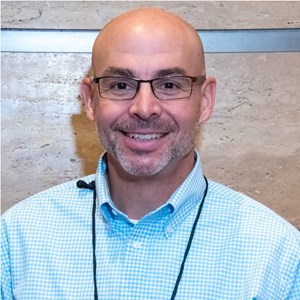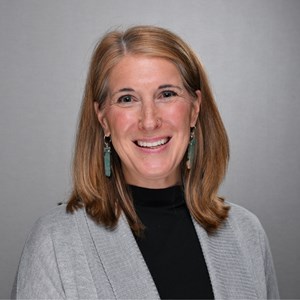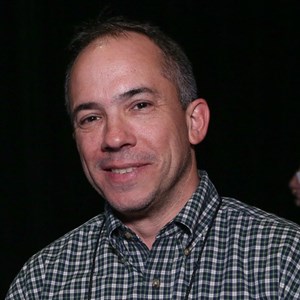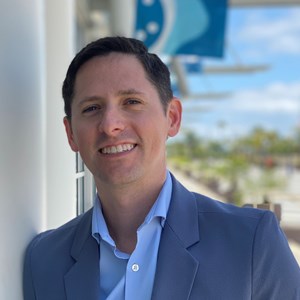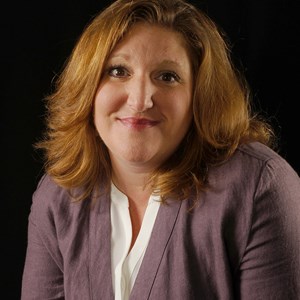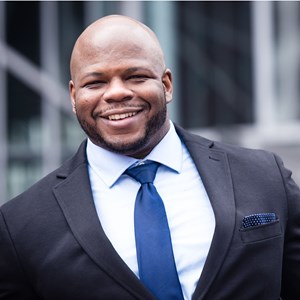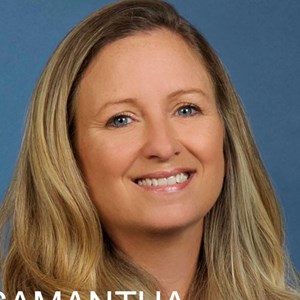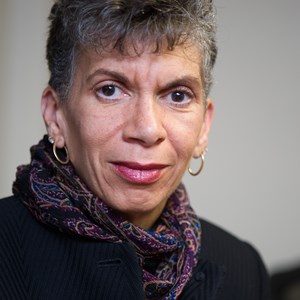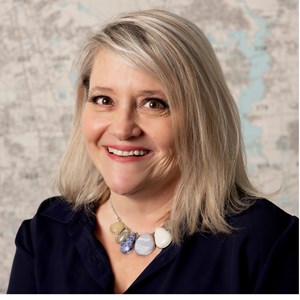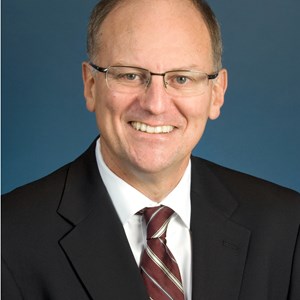COAA Connect Spring 2022 | Adapt and Overcome
University of Maryland Baltimore
621 West Lombard StreetBaltimore, MD 21201-1512
United States
* Registration open until 5/10/22 at 12:00 AM (EST)
Event Details
COAA's spring conference in Baltimore (May 11-13) will be the organization's first at a university member's campus. The overriding theme of the event - "Adapt and Overcome!" - speaks to what we've been doing the past two years and correlates with the fantastic content.
Beyond that, attendees will have the option of touring nearby Oriole Park at Camden Yards, enjoying an evening reception at that same iconic venue, and participating in the COAA Cares effort to construct a "Happy Wheels" cart for the local Ronald McDonald House.
SCHEDULE-AT-A-GLANCE

DOWNLOAD SCHEDULE
2022 COAA Connect Speakers/Presenters
Hotel Information




















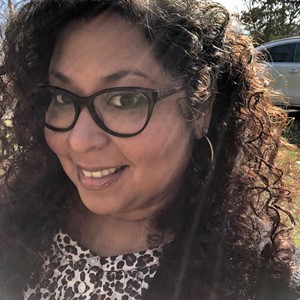















































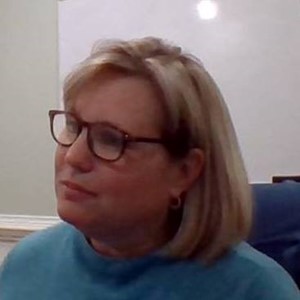











































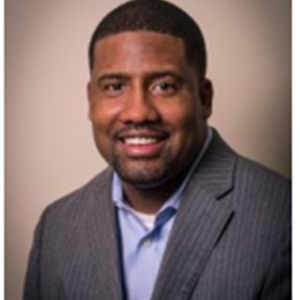





CONFERENCE AGENDA
WEDNESDAY, MAY 11, 2022
Whether this is your first COAA event or not, you might have questions about the organization and its purpose. Maybe you know the basics but would like a deeper diver or wonder how you can plug in and participate ... or would just like to know COAA can help you do your job better. If any of those apply, this session is for you. Grab some caffeine and join us for an informal introduction to THE home for Owners who are serious about improving their project leadership game.
Tour
Come see Oriole Park at Camden Yards from a whole new perspective. Enjoy the charm of the ballpark from club level suites, the press level, and even the Orioles dugout.
Oriole Park revolutionized baseball when it debuted on Opening Day 1992. Now, here's your chance to go behind the scenes of this historic ballpark and learn more about how it has continued to change the baseball fan's experience ever since.
Lean Coffee
This session is not about Lean…and it’s not about Coffee! Come experience an organized, interactive meeting format where the participants set the agenda, have fun, and learn what is important to them. Attendees will learn why it is called Lean Coffee, then we will experience the process first-hand and also learn how to use this format for your own meetings. People who have used it say things like, “It completely changed our staff meetings—for the better. It’s amazing.”
- Attendees will be able to measure how to reduce waste via consideration of expenditures
- Attendees will identify how empowering the team creates value for the end customer.
- Attendees will be able to distinguish challenging boundaries.
- Attendees will be able to be able to measure how delivering maximum value as efficiently as possible effects the end customer.
11:30 AM - 1:00 PM | Lunch On Your Own
Lunch on your own
Join COAA leaders as they welcome you to Baltimore, provide an overview of the conference, and speak briefly on organizational news & issues.
The Construction Market Crystal Ball: What Owners Need to Know!
What should Owners budget for cost escalation in the post-pandemic economy? What pricing structure should be used to accurately estimate project costs? This presentation will answer these and other questions through an exploration of trends, construction volumes, labor productivity, and global construction commodities such as oil, lumber, copper, and steel. Conclusions from these trends will provide attendees with an understanding of micro and macro global economic drivers and their role in construction costs. Presenters will examine price changes; advice what to expect in 2022 and 2023, and leverage a case study to provide guidance on effective ways to procure projects in a post-pandemic market.
Learning Objectives:
- Learn the impact of global economics on construction costs
- Understand how to reduce risks in your projects
- Understand reasonable contingencies for design, escalation, bidding, and construction
- Project procurement guidance
Presented by: Blair Tennant and Zachary Bergeron, Vermeulens
Don't forget to work on the COAA Cares project in Room #353.
Market Conditions: The Conversation Continues
Please join us as we continue the conversation started by Vermeulens in the first session. We will encourage group-based discussions on escalation, workforce challenges, supply chain, and other post-pandemic impacts. How are your peers navigating these current challenges? How can you strategically reduce risk on your upcoming and current projects?
Learning Objectives:
- Learn about the current escalation experienced on recent bids
- Understand how to reduce risks in your projects
- Understand lead time impacts on supply chain
- Awareness of workforce challenges currently being experienced
Small But Mighty Projects
Anyone who’s managed a “small” or “minor” project knows that they can be just as challenging as a “major” project, sometimes more. Regardless of how your organization defines “small/minor” ($500k and under, $1M and under, etc.), these projects often feature the same volume of tasks for the Owner’s PM, but with less time and fewer dollars. And they’re often led by a PM burdened with too many projects to pay proper attention to any of them. A 2020 COAA survey of Owners identified common challenges and pain points, but how can those be overcome? Join us for an open discussion of a crucial topic for most serial-builder Owners and help contribute to a body of peer-to-peer knowledge, guidance, and tips & suggestions. We’ll attack this by focusing on these aspects of small/minor project management: Intake / Planning, Communication, Budgeting, Scheduling, Quality, PMIS/Software, Organization/Administration
- Discuss common challenges with “small” or “minor” projects.
- Receive and offer solutions and strategies for overcoming those project management challenges.
- Learn from peers’ specific means & methods for improving the planning, pre-design, and design phases of small/minor projects.
- Learn from peers’ specific means & methods for improving the bidding, construction, and closeout/turnover stages of small/minor projects.
Applying Lean Manufacturing Approaches to Our Industry to Accelerate Industrialized Construction
This is a hands-on workshop to explore the tenets of lean manufacturing, process flow, takt planning, and reduction of variance. We will use four different simulations that you can take away and repeat with your teams. You will not want to miss this chance to really dig into process flow with advanced practitioners in the room. Understand the impact of waste and variance and identify further opportunities for industrialization approaches that optimize flow on your job sites.
Presented by: Craig Davis, Charlie Dunn, and Megan Ryan, DPR
Join us for a quick & fun recap of the day’s key takeaways from the perspective of attendees, facilitators, and presenters. If you were unable to attend a particular session or workshop, this is your chance to discover what you missed!
Meet, network, and socialize with your fellow attendees back at the Hilton Baltimore Inner Harbor. Plenty of hors d'oeuvres will be served, along with a variety of beverages at the bar.
Opening night reception is sponsored by:

THURSDAY, MAY 12, 2022
Enjoy a hot plated breakfast in the SMC Campus Center ballroom (208/210), which will host general sessions and meals throughout the conference.
8:15 AM - 9:30 AM | Kickoff and Keynote
Kick Off | 8:15AM - 8:30AM
Let’s get busy learning! Grab your seat for a preview of today’s content by the Chair of COAA’s Conference Committee.
Keynote: Reignite the Passion at Work | 8:30AM - 9:30AM
The world of construction, which has always been infused with stress and pressure, has somehow become even more taxing. Escalating prices, material delays, budget and schedule strains, a skilled workforce shortage, the push to “do more with less,” a global pandemic, and an itch to achieve true work/life balance ... it’s no wonder that mental health issues in our industry are so pervasive. Employees in this, and many other industries, are burning out at unprecedented rates as they deal with these and other challenges while yearning for more meaningful work within a positive culture.
That’s a depressing recap, but these challenges can be overcome. This is the moment for us to stand up and actualize our "new normal” ... to reignite passion at work ... and strengthen the foundation of our teams.
Learning Objectives:
- Exposure to strategies for creating a positive work culture
- Learn concepts to strengthen team performance
- Understand the importance of positivity
- Develop skills to improve employee satisfaction
David Shar, a doctoral candidate and expert on burnout and meaningful work, will introduce his “3Ps” of a passionate workforce: Positivity, Possibility, and Purpose. Through the power of story, humor, and peer-reviewed research (for the nerds), David will guide you on a journey toward reigniting passion in your work. Participants will leave armed with new ideas and the motivation to implement them within their organizations and project teams.
During the break please be sure to visit our exhibitors and sponsors.
Strengthen Your Teams: Keynote Breakout
Join our keynote speaker for a deeper discussion of ways to improve your organization's culture and project teams. David Shar will facilitate this continuation of his keynote address and allow attendees to ask questions and explore concepts presented during the keynote.
Learning Objectives:
- Learn more about the importance of culture, environment, and morale with respect to employee performance
- Hear and discuss strategies for creating and maintaining a positive culture within organizations and project teams
Rapid Fire 640: Lean Lessons
Don’t miss this opportunity to hear lessons learned on Lean practice implementation, delivered in a way that will force you to put your phone down and pay attention. You’ll see several “no waste” presentations delivered by experienced Lean practitioners using only 20 slides at 20 seconds per slide for a total presentation time of 6:40 each. This format will keep you on the edge of your seat and provide exposure to several perspectives on Lean and how it can be used to improve team integration and project leadership.
Learning objectives:
- Exposure/awareness to numerous design and construction lean practices
- Learn project implementation strategies
- Understand how to influence project culture
- Be able to identify the benefits of projects and team integration
Panel members: John Bechtel, Penn State University; Martin Kimmel, Kimmel Bogrette Architecture + Site, Inc.; Ann M. Leiner, Stacey & Associates, LLC; Andrew Quirk, Clayco; Mike Stauss, Clayco
Don't forget to work on the COAA Cares project in Room #353.
Building Psychological Safety to Address Mental Health
After two years, the stresses of a global pandemic have compounded the existing mental health challenges in the construction industry. According to the CDC, construction has the highest suicide rate of all industries in the United States. Construction owners are distinctly positioned to increase awareness, and champion strategies that counter the existing impediments. The discussion leaders will briefly review relevant data, and then focus on research-driven strategies and actionable steps that owners and others can employ to promote mental wellness and create a psychologically safe workplace and supportive job site culture.
Learning Objectives:
- To build upon an understanding of mental health awareness and its impact on job site safety.
- To gain an understanding of psychological safety and its significance in workplace culture.
- Explore ideas that create an environment that supports a psychologically safe workplace and job site.
- Describe the importance of psychological safety to drive team performance.
Presented by: Dan Lester, Clayco
Enriching the Morgan State University Experience through Integrated Design
Morgan State University (MSU), founded in 1867, is one of the nation’s premier HBCUs—the largest in Maryland. Calvin & Tina Tyler Hall completes a critical campus master plan component that enhances internal connections and its partnership with the community. Tyler Hall tells the story of how an integrated owner, architect, and construction manager team worked together to deliver a highly functional, sustainable, and contextual design rooted in innovation. The project demonstrates how the building and landscape was designed and constructed to meld with the campus fabric and merge multiple departments into a “campus gateway” blurring lines between indoors and out, connecting city to campus, bringing students together, and integrating old and new in a uniquely MSU way.
Learning Objectives:
- See/hear what makes a project team truly integrated and how such integration usually translates into a more successful outcome.
- Learn how and why thoughtful early planning and coordination empowered this team to overcome various project challenges.
- Through tangible case study examples, learn how leveraging innovative planning and construction of all building types can help achieve campus-wide strategic goals.
- Understand and be able to apply strategies for securing public funding streams to support capital projects.
Presented by: Kim I. McCalla, Morgan State University; Ben Morgan, Barton-Malow Co.; Alan Reed, FAIA, LEED AP, GWWO; Stephen Teeple, Teeple Architects
During the break please be sure to visit our exhibitors and sponsors.
Enjoy a delicious lunch while this year's winners of the Albert E. Phillips Scholarship are announced.
Need for Speed? Insights From a Modular Construction Project
Project leaders from the University of Maryland Baltimore County (UMBC) will outline their conditions of satisfaction for this Design-Build project and how those conditions were achieved with the support of the D-B team and offsite manufacturer. Offsite construction was necessary to allow for only eight months of onsite construction due to a variety of reasons. Learn how the Owner drove this innovative approach starting with the RFP, and how the project team executed the Owner’s vision to meet the conditions of satisfaction. Ultimately, would UMBC employ this method again?
Learning Objectives:
- How to drive a collaborative partnership to meet project objectives through unique contracting methods.
- Identifying the advantages as well as potential pitfalls of a Design-Build delivery method.
- The impacts of off-site building construction on a project team, campus, and its community.
- The impact of lessons learned on an owner’s decision to engage in a design-build or off-site manufactured project in the future
Presented by: Tom Argasinksi, UMBC; Stephen Chesko, Whiting-Turner; Rod Frey, Gilbert Architects; Greg Oniskey, MODLOGIQ; Stacy Tanner, MODLOGIQ
What I Love & Hate About Updating My Contracts
You may have started with a set of standard construction contracts, but over the years made ad hoc changes that have led to Frankenstein contracts - contracts that were sewn together from a graveyard of failed construction projects. How do you identify when it is time for a contract update? What industry resources can you customize that are efficient but work for your organization? What checklist items should owners consider when updating their contracts? This interactive presentation will share how a few owners updated their approaches contractually speaking, as well as the challenges they continue to face in this journey.
Learning Objectives:
- How can owners keep contractually ahead of the curve?
- Identify resources for your updates
- Identify how standard contracts differ and how can they help?
- How to customize and update your contracts efficiently to meet your organization’s needs
Presented by: Joe Cleves, Taft Law; Jack Mumma, MSU; Brian Perlberg, ConsensusDocs; Pen Wolf, The Cleveland Clinic
Don't forget to work on the COAA Cares project in Room #353.
You’re Going to What While I’m Still In Here?!
The UTHealth Medical School Modernization Story
Project leaders of an infrastructure/systems modernization project for the UTHealth Medical School faced an enormous challenge ... how do we safely execute more than $100M worth of work throughout a million square feet of fully occupied and operational space without completely ticking off every facility occupant and user? Learn how they pulled it off – and how you can apply a similar approach to practically any project.
Learning Objectives:
- Attendees will be able to carry out a thorough assessment of existing conditions and realistic cost estimating to secure funding
- Attendees will discuss establishing and maintaining healthy, open relationships with internal stakeholders
- Attendees will define a procurement/bidding phase that emphasizes the value
- Attendees will apply an emphasis on communication and minimization of both risk and disruption
Presented by: Steven Bennett, UTHealth; Heather Camden, E&C Engineers & Consultants Inc.; Julie Lucas, UTHealth
Is P3 for Me? Practical Guidance for Successful Delivery
The allure and promise of a Public/Private Partnership (P3) must be checked against an honest and realistic self-assessment. Is your organization truly prepared to successfully navigate within the altered environment of this delivery method? Leaders from two large public-school districts will share practical experience regarding appropriateness and “fit” of P3 arrangements and how they adjusted both their expectations and internal operations to fit the model. Also hear from one of the nation’s leading K-12 design firms what Owners should look for before entering P3 arrangements and steps to consider for securing comfortable levels of collaboration, oversight, and control with P3 projects.
Learning Objectives:
- Enables self-assessments determining whether the potential benefits of a Public/Private Partnership (P3) align with the organization’s operational structures, practices, and expectations.
- Identifies the types of internal structures and resources that facilitate effective P3 collaborations and should be in place prior to the P3 engagement.
- Establishes practical and process-oriented work methods that contribute to the organization’s successful mitigation of risks, and for securing the desired outcomes.
- Outlines what characteristics may be important in selecting design-build/and P3 partners.
Presented by: Luis Vidostegui, Stantec Architecture; Nicole Ward, School District of Phildelphia; Jason Washington, Prince Georges County Public School
During the break please be sure to visit our exhibitors and sponsors.
In the Driver’s Seat: An Owner's Road Map to Driving Collaborative Delivery Strategies
It's one thing to talk about it, but it's quite a different story to be about it. Many Owners are aware of and support modern project delivery principles but have yet to figure out a path to effective implementation. From revamping contracts and selection process documents to internal training to drive a paradigm shift away from the "traditional" delivery mindset toward collaborative models ... making it happen involves a lot of work. Learn how the California State University's construction program evolved to include innovative delivery methods such as "Collaborative Design-Build" and how they train their project managers to take ownership of the culture and success of their project teams.
Learning Objectives:
- Learn and be able to implement strategies for transitioning from traditional project delivery methods to more innovative methods, such as Collaborative (Progressive) Design-Build.
- Understand the Owner’s role in leading successful Collaborative Design-Build projects.
- Explore integrated incentive programs that drive trade collaboration and improved outcomes for any delivery method.
- Hear ideas for overcoming legislative or policy restraints to pursue delivery method innovations.
Presented by: Kevin Laut, Calfornia State University System; Victor Sanvido, Southland Industries
Join us for a quick & fun recap of the day’s key takeaways from the perspective of attendees, facilitators, and presenters. If you were unable to attend a particular session or workshop, this is your chance to discover what you missed!
Our Thursday evening reception will be held outdoors on a rooftop bar at iconic Oriole Park at Camden Yards, home of the Baltimore Orioles. This is a unique opportunity to network in a setting like no other ... and watch for a surprise visitor from just up the road!
Evening reception is sponsored by:

FRIDAY, MAY 13, 2022
Enjoy a hot plated breakfast in the SMC Campus Center ballroom (208/210), which will host general sessions and meals throughout the conference.
Using Structured Workflow to Improve Project Closeout
Is project closeout a pain point for your organization? Learn how the University of Central Florida employed their project management software process customization tools to create and implement a Final Completion and Closeout process that greatly improved closeout duration and ensured complete document turnover.
Learning Objectives:
- Discuss the process for creating such a workflow, including outreach to stakeholder groups.
- Understand how the use of project management software structured process workflow can improve efficiency accountability, and document turnover during project closeout.
- Review an example process (UCF) with workflow steps
- Discuss best practices, lessons learned, and modifications of the process since inception.
Presented by: Bill Martin and Samantha Mason, University of Central Florida
Creating a Framework for Effective Organizational Change
Change is happening every day. Teams and organizations that plan and execute a change framework are more effective and successful. Learn the important components needed for implementing change and how it can lead to a culture that embraces and sustains transformation. Implementation of design and construction change initiatives will be shared to establish a strong connection to the audience.
Don’t fall off the cliff without a parachute!
Learning Objectives:
- Awareness of the importance of change management.
- Be able to identify ways to adjust a change framework through uncertainty.
- Learn how to apply a change framework to long-term projects.
- Learn how to apply a change framework to short-term projects.
Presented by: Chaslyn Batchelor and Anna Borgerding, University of Maryland, Baltimore
During the break please be sure to visit our exhibitors and sponsors.
5G: What It Is and How It May Impact Your Building Program
At a time when technology is transforming and expanding the way people learn, think, and live, an organization’s success will depend on its ability to continually adapt and remain competitive. Will 5G affect or replace WiFi? Will additional building infrastructure be required to support it? If you wonder about these sorts of questions and the impact of 5G on your organization, people, and infrastructure ... be sure to check out this session.
Learning Objectives:
- Understand the meaning and roots of the term “5G,” which is not simply a cell phone upgrade
- Learn what the implications of 5G are to the built environment in all types of buildings in every industry
- Hear and be able to apply strategies to account for 5G in future construction and renovation projects
- Understand how 5G will “enhance the users' experience” in the workplace environment
Presented by: Vince Wolcott, GHD Digital
Owners & Contractors Unite! Winning the Workforce War
The skilled workforce shortage is real, and construction is losing a battle with other industries for critical talent. Strategic alliances are often the key to winning any war, and this one is no different. Owners and builders must align themselves and act in concert to attract and retain talent from high schools, trade schools, the military, and universities. Learn what the Texas-based Construction Career Collaborative is doing to help and what role Owners can play in this critical effort.
Learning Objectives:
- Identify your workforce metrics
- How to Build a sustainable Toolkit for equality
- How to shift the pendulum to Owners taking ownership of the workforce.
- How to ensure everyone coming on the job has the opportunity to advance
Presented by: Spencer Moore, MD Anderson Medical Center; Paul Nevlud, Marek Brothers; Angela Robbins-Taylor, Construction Career Collaborative; Spencer Moore, MD Anderson Cancer Center; Tom Vaughn, Vaughn Construction; Trent Williams, Texas Medical Center
During the break please be sure to visit our exhibitors and sponsors.
Owners’ Roundtable
Always one of the highest-rated sessions at each COAA conference, this unstructured discussion allows for professional-to-professional sharing of challenges, best practices, and lessons learned.
Lunch with your colleagues and learn more about COAA’s unique Owner Training Institute.




